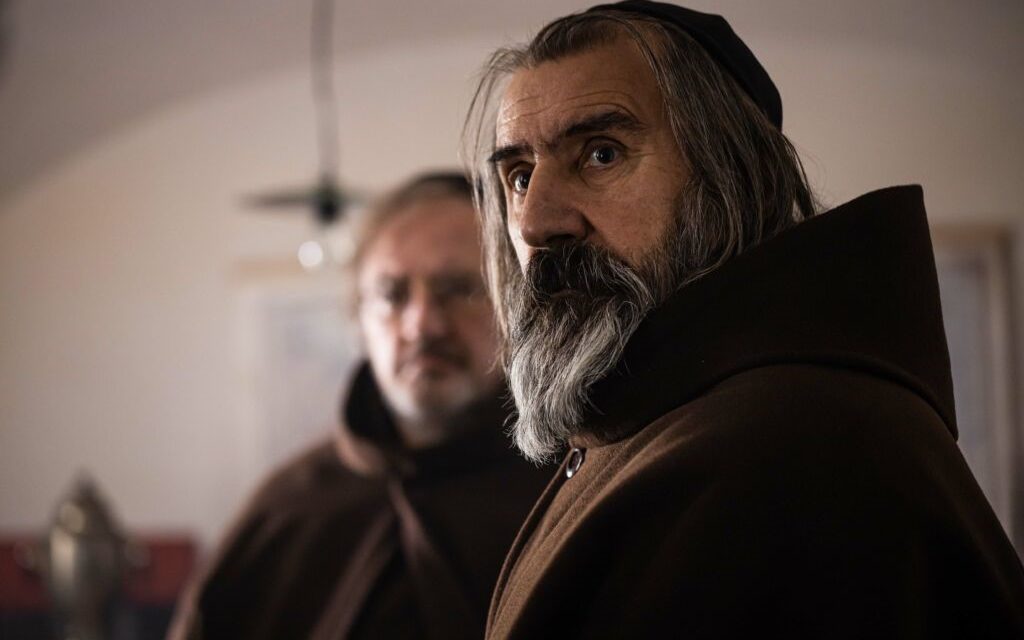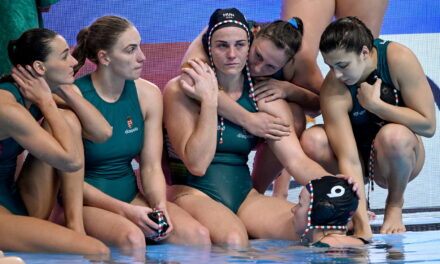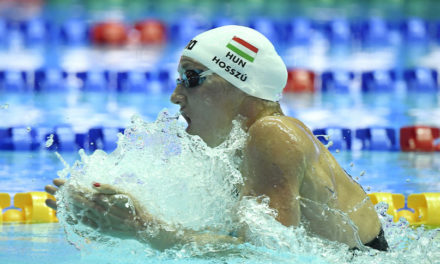The history of the communist persecution of Christians has not been covered in a feature film until now. It was time to tell what happened to the priests, believers and sisters of the Christian churches.
We watched Károly Eperjes' cinema that made up for the gap, which exceeded our expectations: although Magyar Passion has its place among the best Hungarian films, we were still not completely satisfied with the final result. No justice. We cannot talk about regime change until we name the communist mass murderers and get satisfaction!
Hundreds of thousands of Hungarians agree with these thoughts. All of us have had reading experiences that awakened impotent rage at the fact that the communist successor parties and the intellectual circles that served them not only avoided being called to account, but were able to shoot arrows at the Hungarians with foaming mouth for decades.
The MSZP–SZDSZ won the parliamentary election in the same year when I picked up József Mindszenty's memoirs. The reformist and hard-line communists once again entered into a coalition with the Christian-hating liberals of Avos socialization. Those who, in a more just world, would have awaited their sentence in some rural concentration camp were given the task of leading the country.
20 years have passed since then, and partial justice has been done. Partial. The catharsis was missed. The killers got away, and their immediate colleagues and children are still the dominant figures of the Hungarian left.
Hungarian cinematography has therefore long been indebted to the processing of the history of the communist persecution of Christians. It was time to tell what happened to the priests, followers and sisters of the Christian churches. The persecuted Hungarian churches never received satisfaction, there was never a confrontation, no one apologized.
The leading left-wing newspapers like to relativize the seriousness of the actions of the communist dictatorship, excuse the guilty , and calmly feed the lying myth of the most cheerful barracks. It is deliberately kept silent that the last monk imprisoned for political reasons, Ödön Lénárd, was only released from captivity in 1977. During the years of the so-called easing, the persecution of the church was still going on thick, people were tortured, innocents were subjected to forced confessions, priests were blackmailed, agents were ordained as priests.
Károly Eperjes' Hungarian Passion looks back two decades earlier, to the period of church persecution in the fifties. I was interested in the film since the release of the first trailer, and my expectations were not in vain.
The film deals with a short but all the more typical episode of communist terror against the Franciscan order. At a Lord's Day celebration, at which the monks and villagers commemorate (also) the 30th anniversary of Trianon, the ÁVH attacks. People are beaten up, the multitude is dispersed, and the superior of the monastery, Father Leopold, is dragged away. One of the chief officers of the ÁVH wants to acquire an object of grace that was previously returned to the church, so that he can "privatize" it in accordance with the spirit of the time. However, Father Leopold does not want to make an incriminating confession to his fellow monks, does not want to reveal the hiding place of the valuable objects of grace, and humbly tolerates humiliation.
The film authentically conveys the atmosphere of the post-war years, it authentically characterizes the ÁVH, made up of thieves and former thieves, the struggle of people who are degraded and able to preserve their decency, institutionalized robbery, corruption, and self-serving cruelties.
The Russian-speaking ÁVH major is one of the typical figures of the system, who entrusts a former Franciscan student, First Lieutenant Keller, with getting the pious father to speak. As a convinced communist, the young authoritarian approaches the task with great enthusiasm. He tries to get the Franciscan father to cooperate with torture, beatings, blackmail, and spiritual terror. Freedom, the possibility of returning to priestly service, is replaced by brutal torture, and then the opposite happens all over again.
As the story progresses, we learn more and more about the personal history of Father Leopold and First Lieutenant Keller. All the miseries of Hungary, tormented by the World War, the Arrow Terror, and the Soviet occupation, appear in the film.
Magyar Passion is a masterpiece, a work that fills a gap.
But despite this, we cannot be completely satisfied with the final result. In the film, there are only references to the terror operated by the communists. Those who do not have in-depth knowledge of the historical period depicted in the film may have the wrong idea about the attacks on Hungarian churches.
The film does not show even a fraction of the horrors that the Hungarian monks and nuns had to suffer: rape, decades-long prison terms, murders, mutilations. It is worth remembering that one of the Transylvanian Franciscan superiors was beaten to death with a shovel by the guards in a labor camp.
The restrained depiction of violence is probably due to the sensitivity of Károly Eperjes. He didn't want a true-to-life, blood-soaked cinema, but rather focused on the Franciscan householder's piety and pursuit of sanctity.
Magyar Passion authentically portrays and perfectly reproduces the differences between the church and the communist world. Educated monastic teachers, pious priests, honest religious people, who are opposed by unscrupulous communist criminals. And this world was exactly like that. Just like nowadays.
However, Károly Eperjes' film does not judge. In fact. Father Leopold speaks an important truth in one of the film's key scenes. The bottom line is that we are all guilty of not responding properly to the moral decay of society, of allowing human characters to be distorted to the point that someone becomes an ÁVH or a communist.
This thought already captured my imagination while reading the Mindszenty book. Among the reminiscences of the cardinal archbishop is a case when he was stripped naked in the ice-cold prison, then the door of the cell suddenly opened and an ÁVH kicked him in the spine. Both the villain in uniform and Mindszenty with happy memories fell from the great momentum. Then the ÁVH got up and said in uncertain Hungarian that it was the happiest day of his life.
The cardinal took one look at the man's features and could tell with regret from his features that this man had indeed had the happiest day of his life.
The final message of the film is similar, calling for forgiveness. The Holy Spirit works in everyone, there is a way back even for a hardened ÁVH criminal. Only God can make the final judgment, we can only defend ourselves against the communists, we cannot take revenge, no matter how much our sense of justice dictates this.
If we enforce the principle of an eye for an eye, then we become like the communists.
However, we must not forget anything in the spirit of forgiveness. The world hasn't changed in 100 years. Even today, the whites and the reds are facing each other. We still fight with books and moral statements, they would be ready to herd us into camps. Let us have no illusions, Bence Tordai, Tímea Szabó, the Gyurcsány clan would still like to wear the ÁVH jersey today. Their hands would not shake for a moment.
Featured image: Photo: Adrienn Szabó, Marcell Piti













